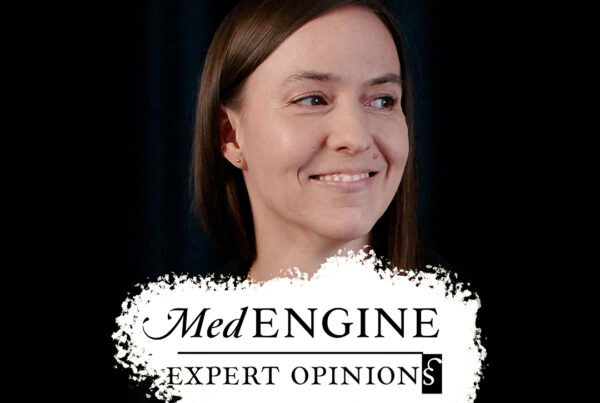Finland is well-known for extensive, high-quality registries for health and social care data. Such data is important for many purposes, such as scientific research, drug and health technology development, and knowledge-based management, to mention just a few. A recently approved act on secondary use of health and social care data opens up new possibilities and streamlines usage of Finnish data.
On March 13th 2019, after almost four years of preparatory work, the Finnish Parliament approved the Act on the Secondary Use of Health and Social Databy a majority vote of 92-80. During the process in Parliament the bill was reconstructed several times to ensure a safe and ethically transparent way to utilize Finnish health and social care data, now being used in a broader context than before.
To get a better view on the new legislation and its effect on medical research in Finland, we met three experts: Sirpa Soini, the Director of THL (The National Institute for Health and Welfare) Biobank; Jaakko Parkkinen, Medical Director at Pfizer Finland; and Petri Lehto, Director, Policy and Communication, at MSD Finland Oy.
One stop shop – smooth and safe data utilization
The biggest revision in the new law is the establishment of a single central operator, a “one stop shop” providing all data services from licenses to data distribution and guidance.

Sirpa Soini, the Director of THL Biobank
“The law renewal will significantly streamline and speed up the application processes for a data user. Instead of having to apply for separate permissions from all of the different data owners, a single permit provider will issue and grant research permits”, Soini declares.
After granting a license to use data, the service operator collects and combines relevant data from different registers. The service provider is also responsible for pre-processing the data, which is distributed in pseudonymised, anonymised or statistical format to users in a secure, access-monitored environment.
A separate unit consisting of top experts in data security will be established to ensure that public data is processed securely, and that individual privacy is protected in a rapidly changing digital environment. Soini underlines that storing and handling data via a single operator will make it easier to control data and manage potential risks. It also ensures that all use of data is governed by law and the appropriate authorities.
Improving data quality and harmonizing sources
In addition to making the combination of data from various data sources easier, the law will open access to new registries. Some examples of data sources available for users are the Kanta service, which includes electronic prescription data and detailed patient data from public and private healthcare providers, and Finnish quality registries.

Jaakko Parkkinen, Medical Director at Pfizer Finland
According to Parkkinen, the number of data sources available is important, but the aim to harmonize registries from different administrators is also critical.
This is a major advancement which will benefit the patients in the form of better treatments. To fully exploit emerging possibilities we need to further standardize healthcare data, for example in different healthcare districts and information systems. We have to invest in data quality so that the same data models can be utilized broadly. The current high standards of data privacy also lay the groundwork for the use of health data for innovation and development”, Parkkinen highlights
Harnessing health and social care data for broader purposes
Besides streamlining data use in practice, the new law allows greater flexibility in the utilization of data for different purposes. Pursuant to the new act, health and social care data from different registers can be used in statistics, research, teaching, knowledge-based management, and development projects. Instead of pure scientific research, the data can be utilized for development of drugs and health technology solutions, knowledge-based management, or process evaluation –these and many other applications are now possible.
All experts emphasize that the interpretation of the law will be critical. They hope the law will be interpreted broadly to serve the various needs of the pharma industry, such as to support decision-making and development activities.

Petri Lehto, Director, Policy and Communication, at MSD Finland Oy
“In the pharmaceutical industry, data can be used for various purposes and the new law will definitely make Finland a more attractive place to conduct registry-based research. However, how broadly Finnish register data will be used depends not only on the companies themselves. It also depends on how authorities will value the evidence generated from the real-world data, e.g., when assessing drug efficacy and safety”, Lehto explains.
From legislation to practice
Although the new law is considered a major step forward, experts agree that only implementation will reveal the true value of the act. The work on a new service provider began in 2015, but it is still unclear when it will be working at full power and how quickly different registry holders will be able to adapt their current practices and resources to meet the new regulations. Experts point out that lots of resources, agile collaboration and clear law interpretation is required to fully leverage the potential of the new legislation. All of them emphasize that now is the time for prompt actions.
“This is a revolution. If implemented wisely and promptly the new law will benefit not only business but the whole of society and, first of all, patients”, Lehto summarizes.




